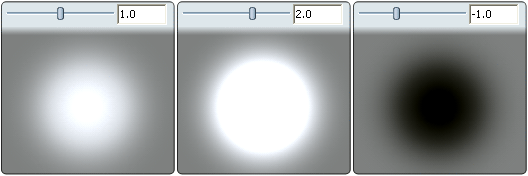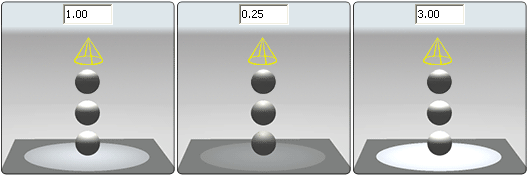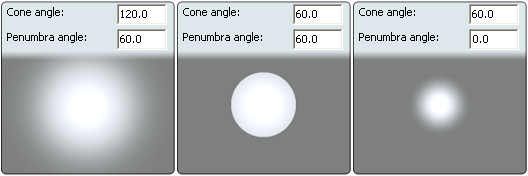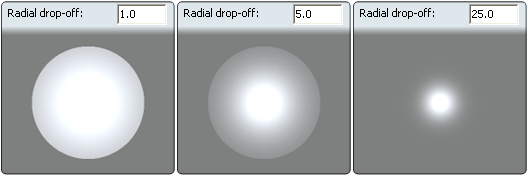Lights all have basic properties:
The color of the light cast on objects. Click the sample square to set the color. The slider sets the value of the color (from dark to light), which also scales the overall intensity.

The brightness of the light. Can be positive (casts light) or negative (removes light). A value of zero produces no light.

The total distance (in meters) that the light will travel from the light source. Objects that are further than this distance from the light will not be illuminated.

Controls the drop-off of intensity (or the “decay”) from the position of the light source to the limit of the drop-off distance. As the rate increases, objects further from the light will receive more of the total intensity of illumination.

Activate shadows for this light when in Ray Tracing mode.
Sets the softness of shadow edges and highlights created by this light by specifying a light source size. A larger size will cast softer shadows and highlights based on the distance from the light source to the object.

Spot lights have additional properties:
The angle (in degrees) from edge to edge of the spot light’s beam.
The angle (in degrees) from edge to edge of the start of the penumbra (or edge drop-off). This value cannot be larger than the cone angle. A value equal to the cone angle produces a hard edged cone of light, while a value of zero starts the penumbra from the center of the cone.

The rate at which the overall intensity drops off from the center to the edge of the light cone. Can be set to any positive number. A value of zero produces even illumination across the cone angle.
